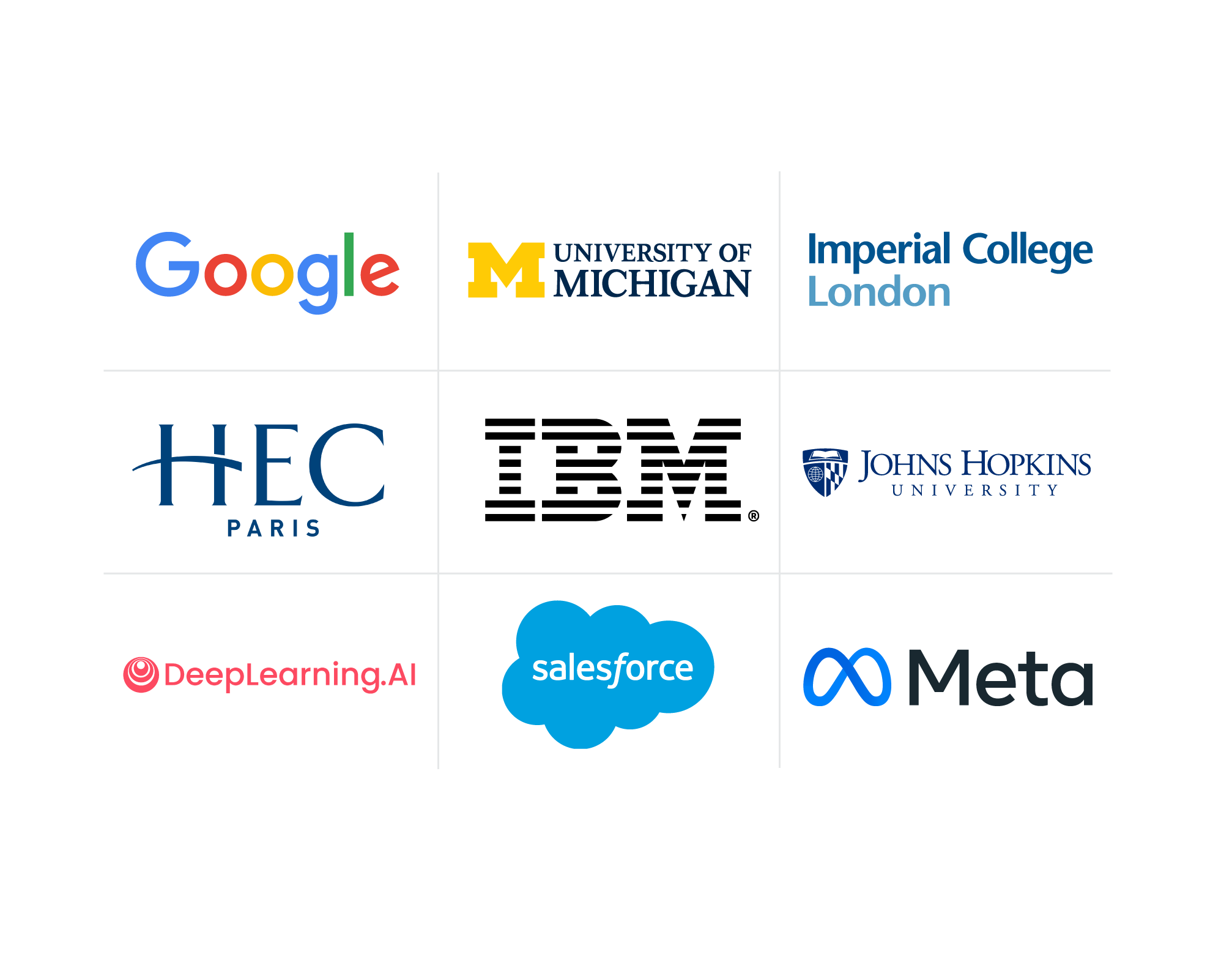5 In-Demand Jobs Requiring AI Skills
AI skills are in demand, with an exponential increase in job postings listing skills like generative AI in 2023 compared to 2022. Learn more about types of AI job skills and AI jobs to decide if AI makes sense for your team or business.
![[Featured Image] A woman works on a laptop by a large window.](https://d3njjcbhbojbot.cloudfront.net/api/utilities/v1/imageproxy/https://images.ctfassets.net/2pudprfttvy6/4FkYeFWFJFMyfZ51fC5aSo/b56462546c8717c03aaff589d8095020/iStock-1130519249__1_.jpg?w=1500&h=680&q=60&fit=fill&f=faces&fm=jpg&fl=progressive&auto=format%2Ccompress&dpr=1&w=1000)
Artificial intelligence (AI) is rapidly transforming businesses as organizations across diverse industries increasingly adopt it. Research from MarketsandMarkets reveals a significant increase in the AI market, worth approximately $150 billion in 2023, with an expected growth to more than $1.3 trillion by 2030 [1].
Along with the growth in the technology and its uses comes a significant increase in the demand for professionals with the AI skills needed to perform essential functions. In the second quarter of 2023, job listings looking for people with AI skills increased by more than 200 percent compared to 2022, according to Upwork. Additionally, posts looking for specialized skills like generative AI (GenAI)—a technology blending machine learning and data analysis and powering tools like ChatGPT—increased by 450 percent [2].
The soaring demand for AI skills has revealed a sizable gap between the skills employers need now and the capabilities of today’s workforce.
The types of AI job skills and popular AI-based jobs offer diverse opportunities for those with the education, expertise, and abilities to work with the technology today and continue growing as it evolves. Let’s explore some popular AI jobs and the AI skills in demand among many of today’s employers.
AI jobs and career opportunities
AI jobs fall under the broader category of computer and information technology (IT) careers. The US Bureau of Labor Statistics projects that all jobs in this category will grow much faster than other occupations, with about 377,500 job openings each year in the decade leading up to 2032 [3]. This estimate represents strong job growth; however, the demand for AI skills and specialties may outpace that number.
*All salary data is sourced from Glassdoor as of October 2023.

1. AI engineer
Average base US salary: $104,891 [4]
Requirements: Bachelor’s degree; some employers may prefer master’s and certifications
AI engineers work with AI-based algorithms, programming and training them to perform their intended functions. They might work on various types of projects, using coding languages such as Python or Java and algorithms and deep learning applications. AI engineers can also specialize in a specific area, such as research, to help develop the technology or find new uses for it. Some experience and knowledge of data science, programming, and engineering, in addition to AI skills like working with machine learning algorithms, is required.
Additionally, AI ethics engineers will likely play a growing role as companies and society balance AI technologies and initiatives with ethical concerns and considerations. In this role, engineers can work to develop ethical standards, guidelines, and policies for AI development. They may review projects to pinpoint potential concerns or identify risks and make sure the product complies with the standards in place.
2. Natural language processing engineer
Average base US salary: $101,424 [5]
Requirements: Bachelor's degree or certificate plus experience; some employers require a master's or PhD
This job explores and develops programs based on the way computer systems and human language are (or can be) intertwined. Natural language processing is the technology that lets you interact with digital assistants like Siri, Alexa, or Google Home by taking human language and translating it into language computers can understand. It also plays a role in transcription services and chatbots.
A natural language processing engineer will develop, program, and maintain natural language processing systems and projects. They will rely heavily on predictive modeling, algorithms, mathematics, coding, and tasks like language modeling and grammatical tagging, which make it easier for computers to understand the meaning of human language.
3. AI research scientist
Average base US salary: $123,040 [6]
Requirements: Advanced degree and relevant experience
This role works on the front lines of AI, researching new models and algorithms and finding new and innovative uses for AI technology. Although the tasks vary depending on the position and company, AI research scientists may collaborate with others on research to further an organization's goals. They may also participate in experiments and write code, apply analysis to product development, delve into the theories behind AI, and design new applications.

4. Data analyst
Average base US salary: $73,604 [7]
Requirements: Bachelor's degree; some employers prefer an advanced degree
AI and data analysis go hand in hand, with the demand for skilled data professionals set to continue growing rapidly. A data analyst will use AI skills and tools to perform repetitive tasks, focusing on work that requires critical thinking. They may also work directly in AI, interpreting data to aid in developing models and algorithms for use across various industries ranging from health care to finance.
5. AI business strategist
Average base US salary: $111,551 [8]
Requirements: Bachelor’s degree at a minimum; master’s may be preferable
Businesses in various industries are embracing AI, which creates the need for skilled professionals who can collaborate with them and guide them to adopt the appropriate AI applications and transform strategies using AI. Like any business strategist, an AI business strategist will work to help an organization remain focused on their goals and meet their objectives.
Although requirements vary, many employers or clients prefer someone with professional experience and skills, such as the ability to make sound decisions, exercise logical thinking in any situation, and overcome challenges with a mix of strategic planning and problem-solving skills.
Types of AI job skills employers are looking for
A 2023 report from Goldman Sachs suggests that approximately 300 million jobs worldwide will be affected by AI technology in some way [9]. While many skills needed to keep up are technical in nature, others are more workplace-oriented.
Technical AI skills
Prompt engineering
Data science and analysis
Programming languages such as Julia, Python, C++, and Javascript
Math, including statistics and algebra
Big data technologies
Machine learning
Cognitive learning and language processing
Applying application programming interface (API)
Frameworks and algorithms
Workplace AI skills
Emotional intelligence
Interpersonal skills
Active learning and willingness to continue learning
Innovation and creative thinking
Bias detection
Analytical judgment and critical thinking
Flexibility and adaptability
Taking the next step with Coursera
GenAI is poised to be the largest technological revolution since the internet. Unlock productivity gains for your workforce and propel your organization forward with Generative AI (GenAI) Academy from Coursera.
Designed for everyone, from executives to teams, GenAI Academy’s curated catalog offers new courses, short-form content, and hands-on projects from leading AI experts, including Microsoft, Stanford Online, Google Cloud, IBM, DeepLearning.AI, Vanderbilt, and many more.
Working in AI jobs requires a dedication to continuous learning. With Coursera for Business, you can upskill your employees to meet the demands of today’s changing technology needs.
Article sources
1. MarketsandMarkets. “Artificial Intelligence Market Worth $1,345.2 Billion by 2030.” Accessed August 16, 2023.
This content has been made available for informational purposes only. Learners are advised to conduct additional research to ensure that courses and other credentials pursued meet their personal, professional, and financial goals.

